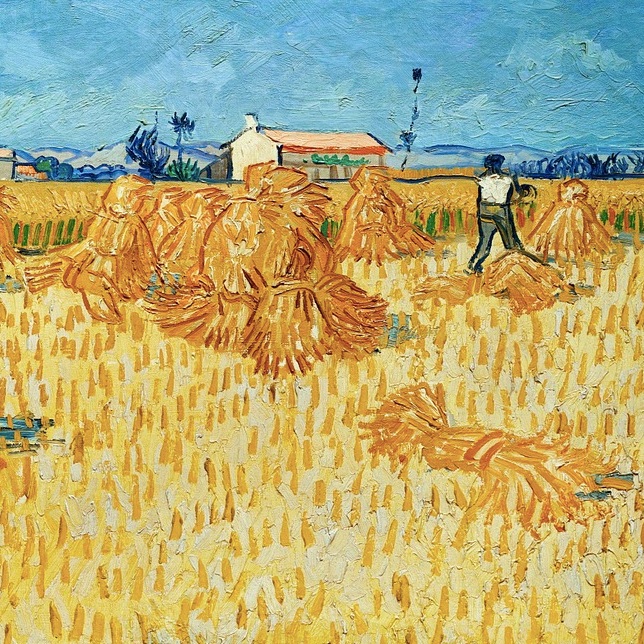|
Luke 12:13-21 - in which the farmer builds a bigger barn to house his bumper crop; Colossians 3:1-11 - which in essence says, if you have got stains on your shirt, change your shirt. There are some other readings you might like to look at first to give some background context. Our pericope is from the wisdom section, therefore, you might like to refer to 1 Kings 3:8-13, in which Solomon asks for wisdom; and Isaiah 22:13b, which says eat and drink for tomorrow we die. This can be compared with Luke 12:19, which quotes eat, drink and be merry, but in 1st-century Palestinian culture, they would have known the Isaiah version. James 4:13-17 reminds us that we do not know what tomorrow will bring, and Luke 16:19-31 is the story of the rich man and Lazarus. Matthew 6:21 reminds us, “For where your treasure is, there your heart will be also,” and Luke 12:33 tells us to sell possessions and acquire a purse that will not wear out, a treasure which will not be exhausted. Ecclesiastes 2:19 reminds us that you cannot take it with you. This bundle of references is a useful starting point for today’s story. Luke 12:1 tells us there are 1,000s in the crowd, and it is from this crowd that one person comes forward, asking about the fairness of his inheritance. Deuteronomy 21:16-17 tell us that the firstborn gets a double portion of the inheritance, as is played out in Luke 15:15-16 in the story of the prodigal son, where the younger son gets one-third of the estate. The man asking Jesus a question about inheritance shows the importance in which Jesus was held. They thought his authority would be able to solve the dispute, but Jesus did not want to get involved. Instead, he uses the opportunity to talk about greed. In the story, the farmer’s land has produced abundantly. We are not sure what effort the farmer has put in, but we assume that he did everything he needed to help the land and followed the legal requirements of gleaning (compare the book of Ruth, where being poor, she was able to take wheat from the outskirts of a field). We also assume he has paid his tithe of one-tenth because we are not told otherwise. The key question that this story prompts concerns security. Do we get our security from God, from our neighbours and community, or do we solely rely upon ourselves? Another question the story prompts is what do we do with our gifts? How do we use them? Do we store them up or dish them out? The answer is that whatever gift we have has to be used for the glory of God and for the benefit of others. The farmer was only thinking of himself, and the story is full of “I”. We do not know whether there were poor people or if the neighbours needed to have some wheat because they had not had such a good harvest. Or by storing the grain, was the farmer endeavouring to fix market prices, for the law of supply and demand means that if he reduces the supply, the price will go higher? What would you do if you had this abundance of food or wealth? Would you keep it or share it? Do we put our security in God or in ourselves? The farmer shows no gratitude to God, and the story is one of self-importance. The Colossians reading helps us answer how we should be as people. Paul writes to the people of Colossi, telling them to stop having feelings and emotions of impurity and anger and instead put on clothes of compassion and kindness. So let us, for a moment, stop and breathe. We breathe in and we breathe out, we breathe in and we breathe out, we breathe in … So lets breathe out some of the bad things within us. Using the Seven Deadly Sins as a guide, breathe out pride and breathe in compassion. Breathe out greed and breathe in kindness. Breathe out lust and breathe in humility. Breathe out envy and breathe in gentleness. Breathe out gluttony and breathe in patience. Breathe out anger and breathe in forgiveness. Breathe out sloth and breathe in love. We are often made to feel adequate when listening to the television and the advertisements because our economy is based upon materialism and consumerism. The economy of God is based upon sharing so that we do not hoard but give. Let us give ourselves an internal audit and ask ourselves these questions:
Once we have questioned ourselves, we can move forward. The farmer ate, drank and was merry, but for not long. The story says that God, who uniquely appears in the story and speaks, takes the farmer's life away. His wealth did not save him. So, the lessons from this part of the story are we should not make plans without including God, and we should not store up our wealth but rather share what we have. Wealth does not need to be money; it is our gifts, our resources, having an attitude of sharing and an attitude of community. It is a fabulous story from which we can glean so much, but in essence, find your security in God, share what you have, build your relationship with God and clothe yourselves in compassion, kindness, humility, gentleness, patience, forgiveness and love. This sermon was first preached by Reverend Martin Wheadon at Trinity United Reformed Church, Upminster, on 31st July 2022
0 Comments
Your comment will be posted after it is approved.
Leave a Reply. |
©Copyright
We are happy for you to use any material found here, however, please acknowledge the source: www.gantshillurc.co.uk AuthorRev'd Martin Wheadon Archives
June 2024
Categories
All
|

 RSS Feed
RSS Feed